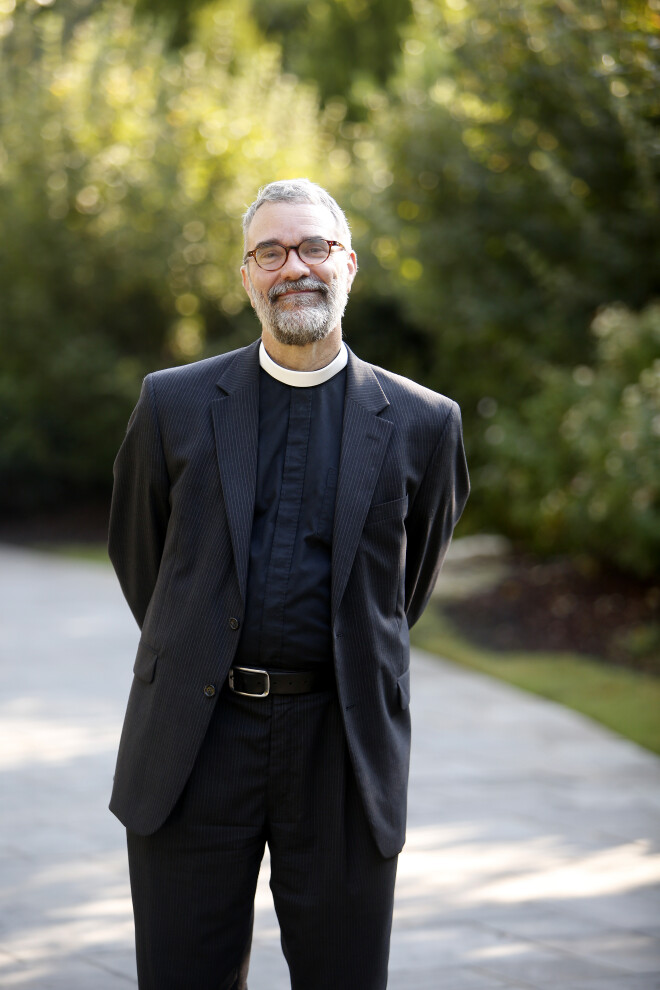Good Disagreement

As you know, in our wider Church, first the primates, and now the Anglican Consultative Council, have been endeavoring to find a way through strong disagreement while they continue to ‘walk together’ (the expression from the Windsor Report). Meanwhile, the Presiding Bishop will appoint a committee of Episcopal bishops, to include Communion Partner bishops, to talk about finding room for dissenting bishops within the fellowship of our own Church. (For this effort he is, to my mind, to be commended). I dare say that the same balancing act is found in its own way at the parish level.
On this topic I have been reading a book, edited by Andrew Atherstone and Andrew Goddard, called Good Disagreement? Grace and Truth in a Divided Church. I learned in their introduction that Charles Wesley turned to classic aphorism into the verse of a hymn:
We should enthusiastically assent to all what Wesley says, even as we are called to account by the last lines. At the same time, we realize that the exhortation has more to do with how we conduct disagreements than their actual resolution. The reason is this: we need to determine which things are ‘stands of faith’ (over which the church stands or falls), which ‘doubtful things.’ And to determine this drives us back to the cases themselves. There are, in other words, few cases where we can apply a prior and more abstract rule to the specific debates that arise in the Church so that we can say, ‘this one is central,’ and ‘this one is doubtful.’ The disagreements recapitulate themselves.
One exception would be direct contradictions of claims of the Creed (though even here one may raise the case of someone like Bishop Spong who did exactly this with no consequences). These would indeed be instances where faith ‘stands or falls.’ (Though even here Eastern and Western Christians have fought- that is what the difference in the Nicene Creed between proceeding ‘from the Father’ or ‘from the Father and the Son’ is about). The real trouble arises when we realize that other issues may have implications impinging on larger issues. Cardinal Newman once said that a snip of a small artery can cause the whole body to bleed out- in other words, the body is one and issues are connected.
At the same time there is obvious truth in the aphorism. Each of our churches has its own liturgical quirks (I can assure you!) which we don’t think are reasons to avoid each other. (Though even here there was a time in the 19th century when Anglicans thought just this because of the implications of, say, reserving the sacrament for the nature of Holy Communion). But where does the obvious zone of taking a stand end and the zone of ‘whatever’ begin? Well, that brings us back to the cases themselves, and so back to the Bible, theology, and discernment themselves…
Given all this, does Good Disagreement… have anything to add? Its best contribution is from Bishop Tom Wright on Paul’s treatment of reconciliation and disagreement. Debaters should not differ over abstract issues, and even the law vs. gospel dichotomy does not convey Christian contention well. Israel was to be reinterpreted in terms of the new, end-times Messiah, Jesus, and his Lordship over God’s creation and humankind. So the debate must revert to this new reality and its implications for the Church’s life. In short, disagreements must go back to Scriptural and theological first principles. At the same time, for example in the series of new pastoral conundra of I Corinthians, disagreements must also display virtues also derived from Messiah Jesus himself, e.g. relenting from divisions (chapter 1), consideration of the poor (chapter 11), charity (chapter 15), or forbearance in light of the eschaton, etc. To the exhortation to theological exertion and such virtues answer disagreements over which the Church struggles? They do not. But they do describe a style of Christian disagreeing, which in itself cannot be discounted.
Peace,
+GRS



